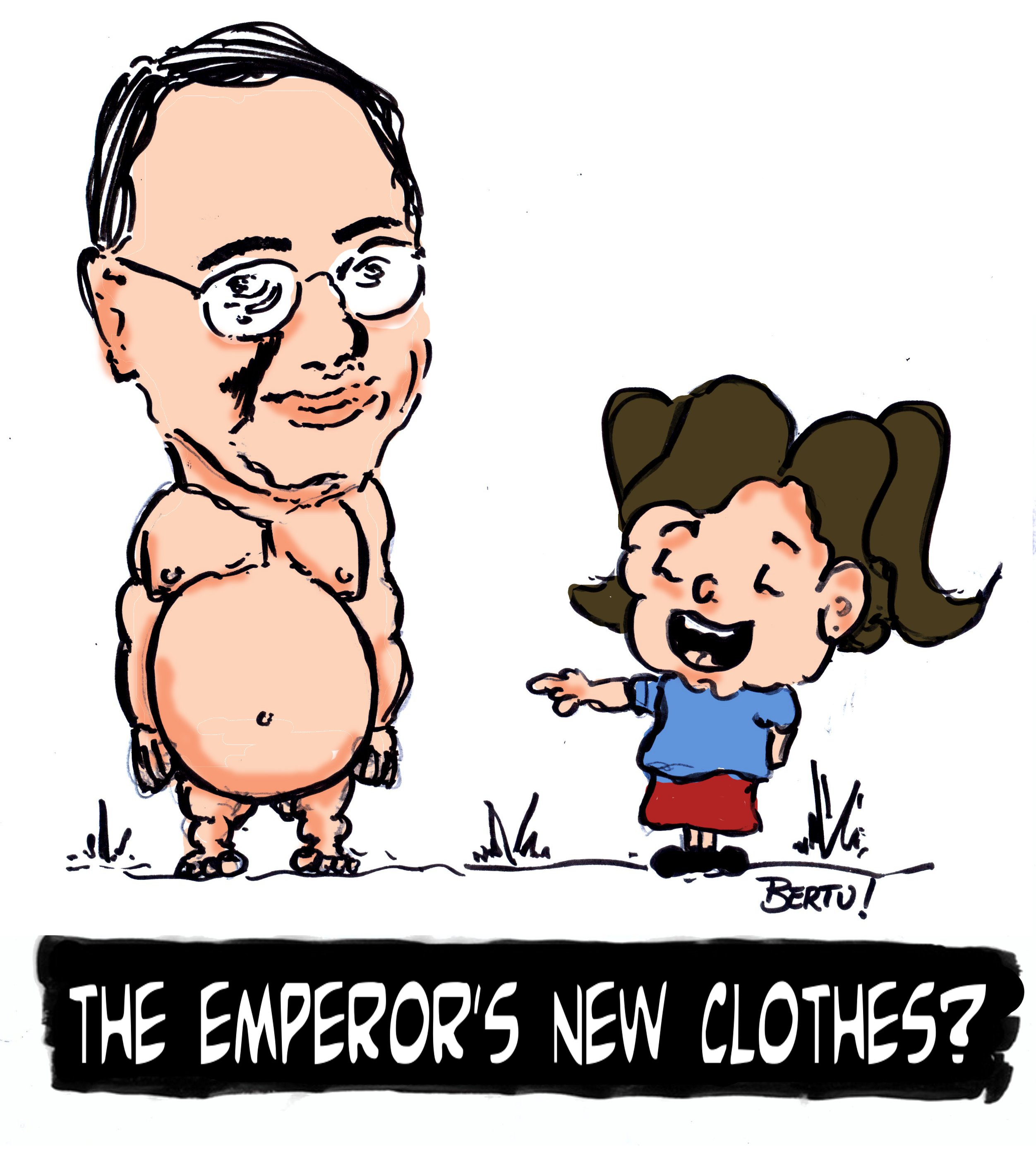According to a possibly apocryphal story that is doing the rounds on the Internet, Steve Jobs watched the launch of the iPhone 4S from his favourite sofa in his home in Palo Alto. The man hailed as a visionary by the world’s press purportedly snacked on apples and rice pudding throughout the performance of Tim Cook: the man who had been the new anointed presenter of Apple’s latest breakthrough. The “source” claims that at the end of the show Jobs smiled as if to say “all things are in good hands” but did not utter a word.
The story is not exactly “Acts of the Apostles” material but you can see where the cult of Jobs is beginning to take shape. Jobs the visionary, the prophet of all things new, the philosopher with a positive attitude about misfits and changing the world. Here was a man who had influenced the globe − the whole world − with his ideas. It was beyond innovation. Innovation is “only” about improvement − making things better. Jobs went one step further. He made things “different”. A Times (UK) columnist put it neatly: Jobs did not give people what they wanted − he gave them products they could never have imagined.
It is somewhere there − the blasphemous fine line between innovation and creation. This prophet of the age of technology challenged the status quo − and won. No matter what he was “creating”, how far his philosophy took him, what Jobs did best was standing on that big empty stage and work the audience into an elevated sense of expectancy until, with the wave of one hand (and click of a button), the latest step in the Darwinian evolution of Apple goods was unveiled.
Yes. Steve Jobs of the limited wardrobe and unlimited intelligence was a master of theatrical presentation. He may have sat back and just given us his products through the usual channels of marketing but he chose to break barriers there too. Apple became a symbol of desirability and speciality − taking brand fidelity to new frontiers. And much of this usually culminated in the special launch events theatrically prepared and magnificently executed by the man who wanted to challenge our way of thinking and whose legacy will live on for much, much longer. Thank you Steve.
Wucking fankers
On Student’s Day this year we were regaled with a bit of amateur theatrics that took place on the university quadrangle. The dramatis personae included, the MegaloMinister Austin Gatt and a set of ministerial groupies, a cross-section of the student body, a couple of journalists faithfully following the ministerial route, and a hitherto unknown Theatre Studies student who goes by the name of Nicolà Abela Garrett. First impressions count, and the first impression we got was of a student who was mightily miffed because of the Arriva Disservice and who voiced such “miffiness” in no uncertain terms by directing a series of expletives to the minister who sleeps soundly at night. Such “miffiness” was couched in expletives of a rude-ish kind and was dutifully reported by the reporters-in-waiting in their respective online and printed papers.
My first reaction was “bravo” to the girl followed by a secondary reflection on the irony of it being Student’s Day. Oh how times have changed since the days when a critical word or two directed at government ministers would be interpreted as an invitation to a herd of thugs for an impromptu “rag day” in tal-Qroqq featuring the accessories of bare fists and knuckledusters. Any inquiries a propos the past should be directed (among others) to Michael Frendo (then esquire) − and no, Deborah Schembri, remembering the past is not an issue of political convenience.
Well done theatre studies student then. A child had finally stood up and told the Emperor the truth about his clothes. Wouldn’t it be great if more people thought and spoke their mind (and voted with it) than just Abela Garrett? What happened next − from all sides of our political power spectrum was an unfolding of scenes in our very own theatrical scenario.
One sees red
The media machine for the Opposition took up its position for scene two. Abela Garrett was projected to heroine status notwithstanding her choice of vulgar language that surely was not fitting for our sede sapientae. Nothing wrong there of course; however, those blessed with a long-term memory could detect a certain hypocrisy by the red media when it came to “judging” students and their ways.
RWD (that’s rewind) back to the last election when a young Caruana Galizia junior invited a cameraman of red persuasion to “f*** off” in no uncertain terms. The very same journalists (and party) that seemed to be exalting Garrett’s proficiency today had taken quite a different tack at the time − pushing the “indignated” buttons. At the time, no opportunity was wasted to call students all sorts of words − FFW (that’s fast forward) to today and all seems to have been forgiven.
Abela Garrett went on to apologise for her language but not for her outburst. The apology was also covered in all the papers along with a sort of investigation/witch hunt into the identity of the individual/individuals who in true MI5/CIA style had stopped Abela Garrett and given her a “talking to” while asking her for her particulars. Conspiracy theories flew across the Internet boards until it turned out that the “bully” in question had acted “spontaneously”.
Spontaneity
Mr Xuereb, a MITA employee, defended his vigorous questioning of the foul-mouthed student by claiming that his was a spontaneous and undirected reaction. The implication is clear − this is not a ministerial investigation with possible repercussions. It was an individual taking the matter into his own hands. Interestingly though, “spontaneous” was his defence and “lack of spontaneity” was the main criticism directed at the solo protester from the blue corner of the spectrum.
Apparently, according to the likes of Daphne Caruana Galizia and Lou Bondì, the fact that Abela Garrett’s protest was premeditated somehow lessens the value of the protest itself. Funny. I remember how both these advocates of spontaneous protesting defended Jeffrey Pullicino Orlando’s not so spontaneous antics in the run up to the last election. We have it from the horse’s mouth − in a recent interview with Josanne Cassar, Pullicino Orlando recounts how he was prepped and trained for those eventful days. In JPO’s words: “I was instructed by Richard Cachia Caruana and Joe Saliba to chase after Alfred Sant whenever he spoke publicly, in order to confront him when he did mention me”. Back then it seemed all very worthwhile for the Caruana Galizias of this world to defend the JPO charades to the hilt. Bah. Plus ça change.
Since when does preparing for an act of protest make it any less effective or truthful? It seems that the Times of Malta has sacked Mr Bonanno, the journalist who told Nicola about Gatt’s visit. Of what pray is this young hack guilty? Of telling Nicola about Austin’s visit? Why? Was it secret? It’s not like it’s a frame up to which he was accomplice. Had there been a false story and had he willingly accepted to become an accessory to it then sure, sack the guy. Here though we had a journalist losing his job because instead of following up on a fax announcing a protest in Valletta he “took his notebook” to the scene of a pre-planned protest he had learnt about via Facebook.
Theatrics and the public
Nicola Abela Garrett chose to enact her own little drama. She planned an ambush on Malta’s sleepy minister. It was well executed and actually got much more attention than is normally reserved to Ministerial hecklers in the standard press. The script included a few lies such as the bit about the bus from Attard to Naxxar and the missing of lectures (What lectures? Very few lectures have actually taken place since the launching of Arriva). She does not lie though when she voices the anger of all commuters who have had enough. As I said earlier − good for her.
The reactions to Abela Garrett’s very public showing were typically overblown. From the Labourite praises on the one hand to the character assassinations by the usual suspects in the Nationalist fold on the other. We are not new to political theatricals. Our very polarised television programmes that are supposed to be investigative are just well-rehearsed Q&A sessions with every pre-selected invitee playing his part. It was amusing this week to watch Lou “indignado” Bondì get hot under his collar on his blog (Lou, a blog?) about a new Saviour Balzan programme during which Balzan interviewed one of the abuse victims.
Bondì would have wished Saviour to ask a few questions that Bondì had prepared but, unsurprisingly, Saviour failed to pick up on this invitation. Bondì knows full well how crucial it is to the theatrics of TV for a programme’s presenter to control the questions as well as the panel of invitees. It’s theatre Lou − and the bad actors’ mask soon falls off on its own so there’s no need to worry about Saviour and his bias… it conforms fully to the journalistic standards on TV that you have so gotten us used to.
Curtain call
That’s all I have for this week. Actually I have more but time and space constraints play their part − as do editorial deadlines. I’d like to borrow the Apple philosophy statement for my concluding lines. I adopted this philosophy for J’accuse when I started the blog and I like to think, every now and then… that I still have that streak of craziness in me that obliges me to think different. Thank you again Steve Jobs.
Here’s to the crazy ones. The misfits. The rebels. The troublemakers. The round pegs in the square holes. The ones who see things differently. They’re not fond of rules. And they have no respect for the status quo. You can quote them, disagree with them, glorify or vilify them. About the only thing you can’t do is ignore them. Because they change things. They push the human race forward. And while some may see them as the crazy ones, we see genius. Because the people who are crazy enough to think they can change the world, are the ones who do.
www.akkuza.com is running on slow at the moment due to other commitments. Bear with us and in the meantime enjoy the new flourishing of blogs in Malta’s volatile blogosphere. Most of all: Think Different.



